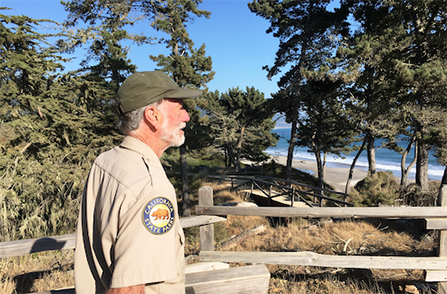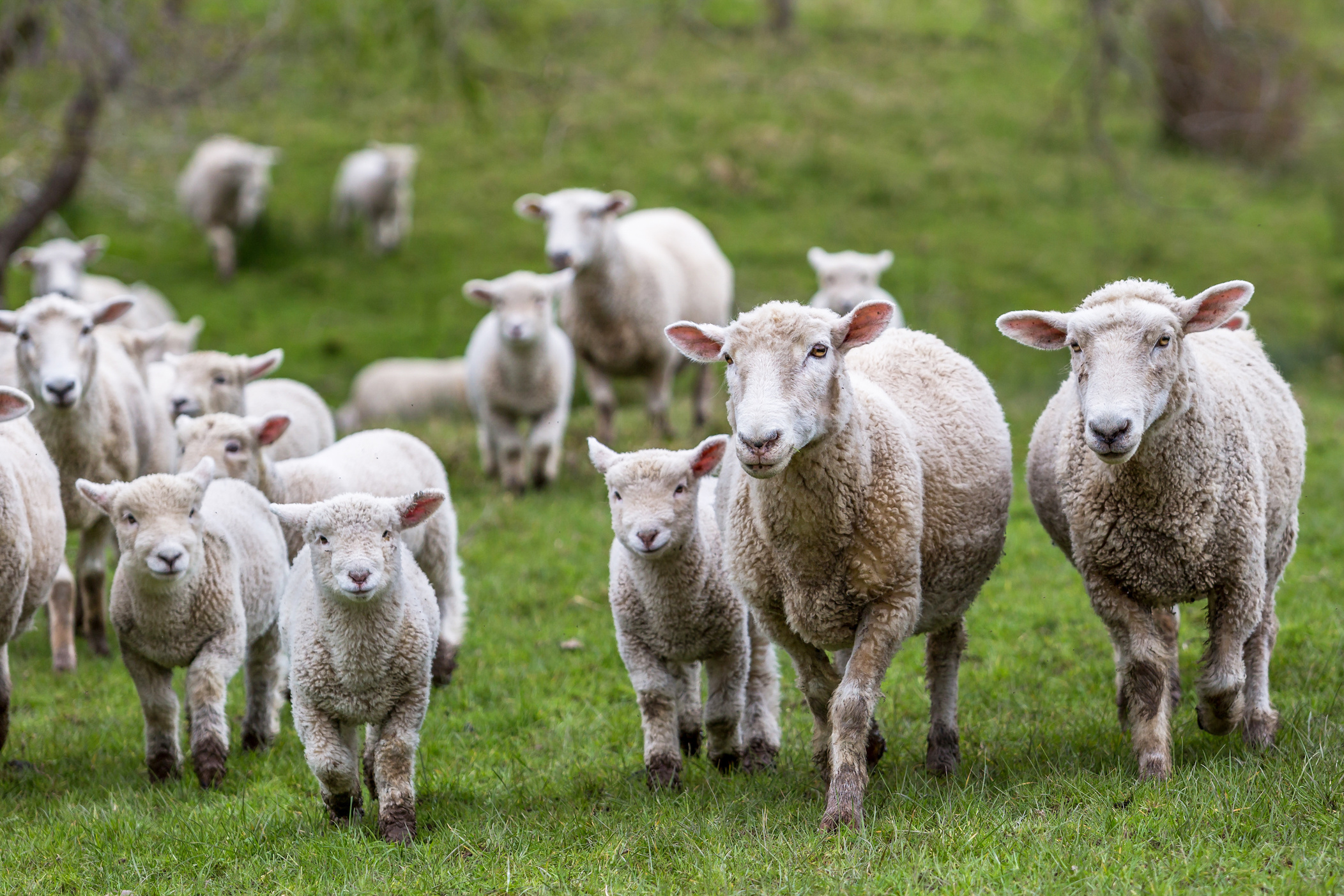6 Secrets to the Good Life That Outdoor Lovers Know
Outdoor lovers—those people who either work or play outside—enjoy a quality of life and serenity of heart that the rest of us can learn with a few simple steps.
I spend several days each week chasing down outdoorsy people to interview for my podcast. These are people who spend a majority of their time outside during the week. My interviews have included commercial fishermen, beekeepers, estate gardeners, alpaca and sheep farmers, lavender growers, falconers, and others whose workplace is the wide world we see from our car as we swoosh by to Busyville.
They all had a unique sense of contentment with their life. They all behaved as if they had found the source code–or the secret–to living a peaceful, good life.
I began to notice a common theme in interviewing these people. They all had a unique sense of contentment with their life. They all behaved as if they had found the source code–or the secret–to living a peaceful, good life. None of them actually said that to me, but time and again I saw the same patterns emerge amongst these outdoor lovers. They are:
1. OUTDOOR LOVERS DON’T WORRY ABOUT WHAT THEY CAN’T CONTROL.
Fog ruins lavender crops. Mountain lions take down your best fleece producers. Some days you go out to fish, burn through $400. of fuel and don’t catch anything. Sometimes, this happens a few days in a row. Those who live and work outdoors are philosophical about such things. It’s the cost of doing business. And what’s to be gained from fretting over it? There’s always tomorrow, next season, a new start, new opportunities.
What are you fighting against that you can’t control?
These are moments you can’t cue up no matter how big your corner office or how deep your pockets.
2. OUTDOOR LOVERS HAVE A SENSE OF GRATITUDE.
Being outside most of the day means you are privy to spectacular sunrises and sunsets. You see the hidden moments of nature that most of the world knows nothing about: bees sleeping in flowers, foxes skirting and pouncing about the bushes, the call of a baby owl and the breach of a whale next to your boat. These are moments you can’t cue up no matter how big your corner office or how deep your pockets. These moments are rare gifts that leave them with a profound sense of gratefulness to be a witness to such wonders. They are lucky and they know it.
Is there anything in the outdoors — or your everyday life — that you are grateful for?
3. OUTDOOR LOVERS WORK WITH NATURE, NOT AGAINST IT.
Too many people interpret the biblical instructions to “have dominion over the earth” as carte blanche to try to impose their will and extract whatever they want by any means necessary. Those that work close to the earth work with the earth. They laugh at the idea of subduing it. They realize that “winner takes all” means, in the long run, everybody loses. They have a sense of stewardship and care for the place where they make a living. So conscientious gardeners don’t use chemicals to blast all living critters off of their plot, they know it poisons the beneficial insects. Fishermen don’t take more than their fair catch, or fish that are too small — thus ensuring next year’s haul. They realize that in order to ensure a healthy future, they have to look towards the good of the planet, not just their pocketbook.
What about your life — or nature — frustrates you because you can’t control it?
4. OUTDOOR LOVERS AREN’T OBSESSED WITH CLIMBING THE LADDER
Usually, when you work in the outdoors, there is not a labyrinth of hierarchy and bosses that you must navigate like an office. There are not the ubiquitous, endless meetings in airless conference rooms. The jockeying for position and office politics are largely absent from this life. Who has time for all that gossiping and maneuvering? The sun is shining and there’s work to be done. Sure, you may work alongside someone who won’t stop talking or is a little lazier than you’d like, but on the whole, it’s a lot less stressful working outside than inside an office.
What frustrations and maneuverings of office life could you let go of?
5. OUTDOOR LOVERS VALUE HEALTH AND PEACE OVER MONEY AND POSITION
All of the people I interviewed acknowledged that this life wasn’t glamorous, nor wildly lucrative. But they gladly traded the serenity and contentment of the outdoor life for the stress and insecurity of the corporate life. They knew they had made a tradeoff and were peaceful, if not somewhat smug about it. It was if they had discovered a secret that the frantic, social-climbing masses were too blind to see. That the outside life paid handsome dividends towards a life of purpose, meaning, and serenity. And those are job benefits you don’t see offered in Silicon Valley or Wall Street.
It was if they had discovered a secret that the frantic, social-climbing masses were too blind to see.
In what areas of your life are you trading money or position for health and peace?
6. OUTDOOR LOVERS HAVE A BROAD WORLD VIEW
While most of us are worried about our local schools, crime in the neighborhood and whether or not we should allow marijuana to be grown in our state, the outdoor folk have a more global outlook.
Sure, they are concerned about those things as well, but in working with the land and the seas, they are eyewitnesses to our changing climate. They have documented in their diaries about spring and planting times arriving earlier, birds migrating later or salmon catches growing smaller. When they speak about what they see happening, we should take notice. They are our watchmen on the walls. Thus, they pay attention to the planet as a whole, because they know it affects their livelihood.
What major events going on in the world might trickle down to affect your vacation plans, your community or your family’s health?
We can glean some of these benefits for our lives even though we don’t spend all day outside.
When we walk to our cars, we can take a deep breath and notice things. What’s the air quality like? Are the birds silent or singing? From which direction is the breeze coming? Does it always come from this direction or does it change from season to season? Does it smell different after a rain? Can you smell the damp earth or pine scent?
As we drive along, we can notice what is in bloom. What homes or businesses are really paying attention to landscaping? Is there a plant, flower or tree you would like to see in your yard? I have no qualms about pulling over and dropping a note in someone’s mailbox to inquire about a certain plant I like. Usually, gardeners are thrilled someone noticed and will share gladly.
After work, can we take 30 minutes before or after dinner to go for a walk to clear the head, off-gas some anxiety? Maybe there’s a sunset happening we can take in from a rooftop or rural lane?
We can encourage nature to visit our backyards. Set up some birdfeeders or a water fountain (water can attract more birds than food). Grow berry-producing plants or bee-loving plants. Drink your morning coffee and look out the window. Notice who pays you a visit.
Just determining to be intentional about noticing nature can improve your “nature blindness” and help you achieve some of the nuanced benefits that outdoor lovers enjoy. This week, take a moment to step outside and step into wonder.










